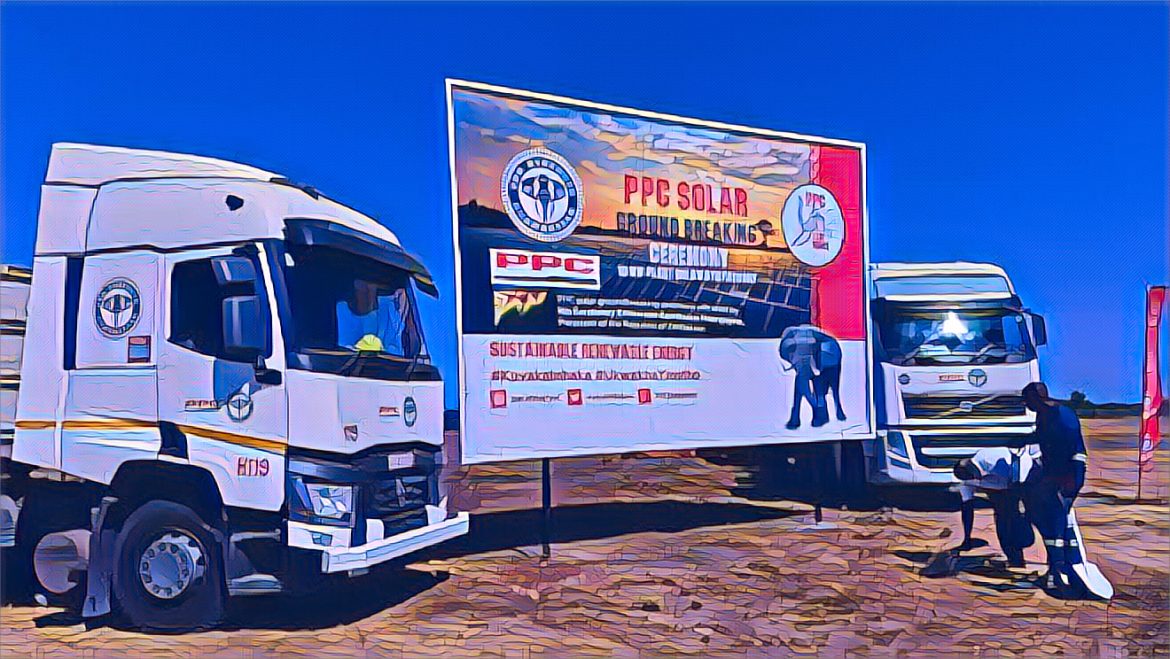KEY POINTS
- PPC Zimbabwe solar plants project to increase energy self-sufficiency.
- The project will reduce operating costs and reliance on the grid.
- The initiative aligns with Zimbabwe’s push for clean energy solutions.
PPC Zimbabwe has announced plans to accelerate the construction of its solar power plants in a bid to increase its renewable energy capacity. According to herald news, the company aims to reduce its reliance on Zimbabwe’s national electricity grid, which has been plagued by outages and load-shedding issues.
The solar initiative is part of PPC’s broader strategy to enhance energy security for its cement production facilities. With the completion of these solar power projects, the company hopes to stabilize its energy supply, reduce operational costs, and contribute to Zimbabwe’s ongoing clean energy transition.
This move comes as Zimbabwe seeks to diversify its energy sources and increase the share of renewable energy in its power generation mix. PPC’s investment in solar energy aligns with the government’s broader push for sustainable development and green energy adoption.
How PPC’s solar projects aim to cut energy costs
One of the primary goals of the PPC Zimbabwe solar plants project is to reduce operating costs at its production sites. Cement production is an energy-intensive process, and frequent power outages have increased production costs for the company. By integrating solar power, PPC aims to achieve greater energy self-sufficiency and lower its energy expenses.
Reports suggest that the solar energy produced will be used to power PPC’s core production facilities. This shift from reliance on grid power to solar energy is expected to stabilize power supply and reduce disruptions caused by grid outages. PPC plans to use a hybrid system, meaning it will still have access to grid power as a backup, but solar energy will become its primary energy source.
The solar power shift is also expected to result in significant cost savings over the long term. Solar energy, once installed, has minimal maintenance costs compared to grid energy, which is subject to fluctuating tariffs and external market forces. PPC’s leadership has emphasized the financial and operational benefits of investing in renewable energy sources.
What PPC Zimbabwe’s solar push means for the energy sector
PPC Zimbabwe’s increased investment in solar energy could have a broader impact on the country’s energy sector. Zimbabwe has faced persistent energy shortages due to limited capacity from hydroelectric and thermal power stations. The success of PPC’s solar plant initiative could inspire other companies to follow suit, driving increased private sector investment in renewable energy projects.
Industry analysts have noted that PPC’s solar shift could influence other manufacturing and industrial firms in Zimbabwe to explore similar clean energy initiatives. This would contribute to the government’s renewable energy targets and reduce the country’s overall dependence on fossil fuels. Additionally, the expansion of solar capacity is likely to create new job opportunities, particularly in the solar installation and maintenance sectors.
The company’s decision to fast-track the solar plant construction reflects a growing trend in corporate sustainability strategies. As energy prices fluctuate and environmental regulations tighten, firms like PPC are recognizing the need for cleaner, cheaper, and more reliable energy solutions. PPC Zimbabwe’s solar initiative is a signal that companies are actively seeking alternatives to conventional energy sources, ensuring greater energy independence and operational efficiency.
With growing interest from both the public and private sectors, Zimbabwe’s shift toward renewable energy could mark a major turning point in the country’s energy sector. PPC Zimbabwe’s solar plants could serve as a model for other companies to emulate, potentially reducing the country’s reliance on imported electricity and fossil fuels.


